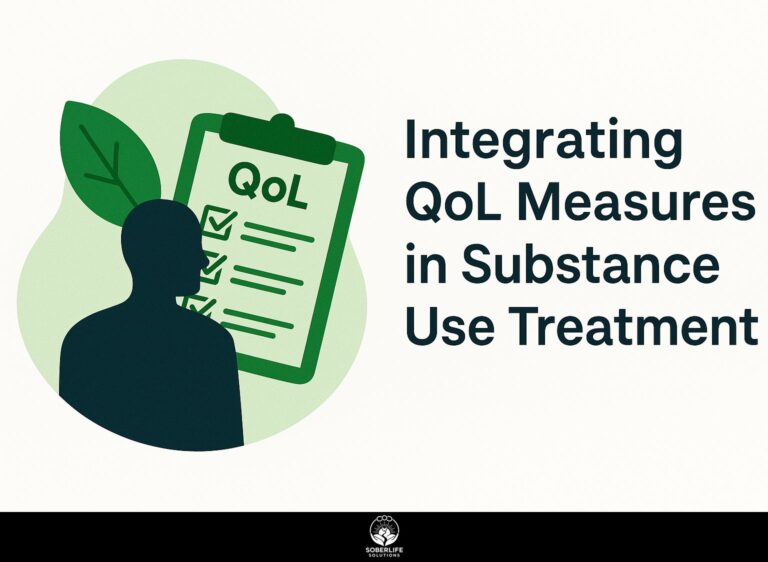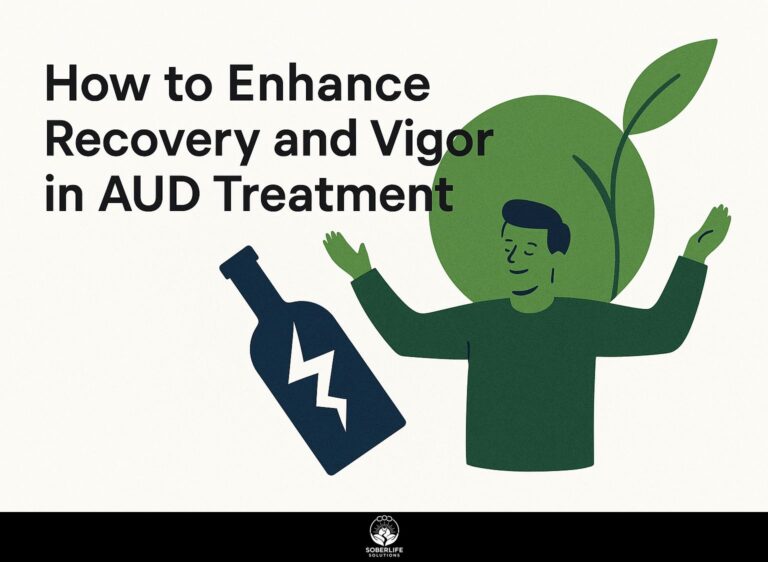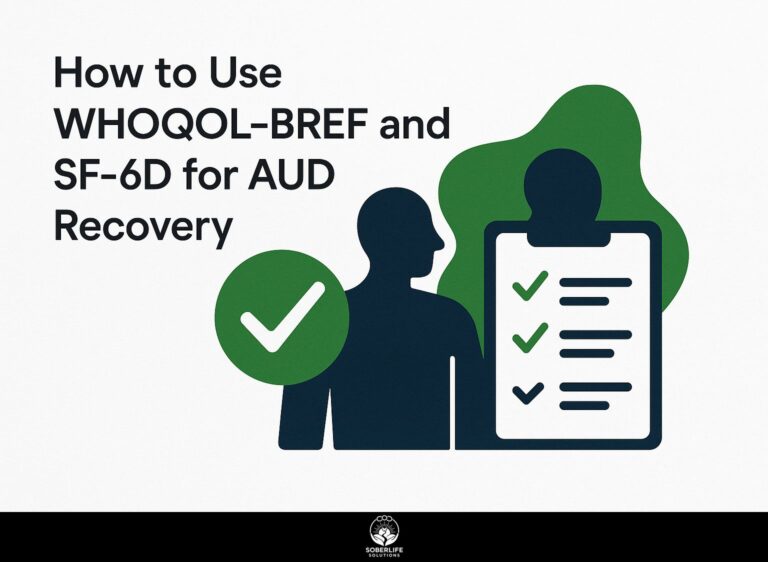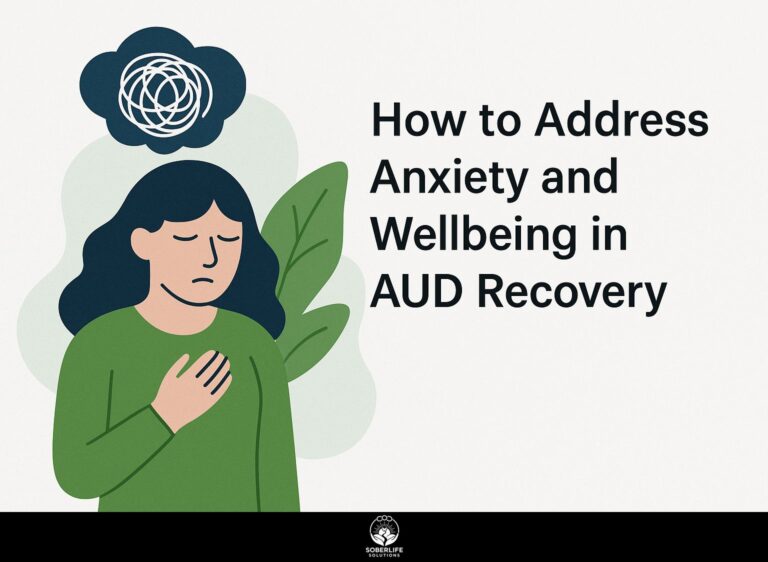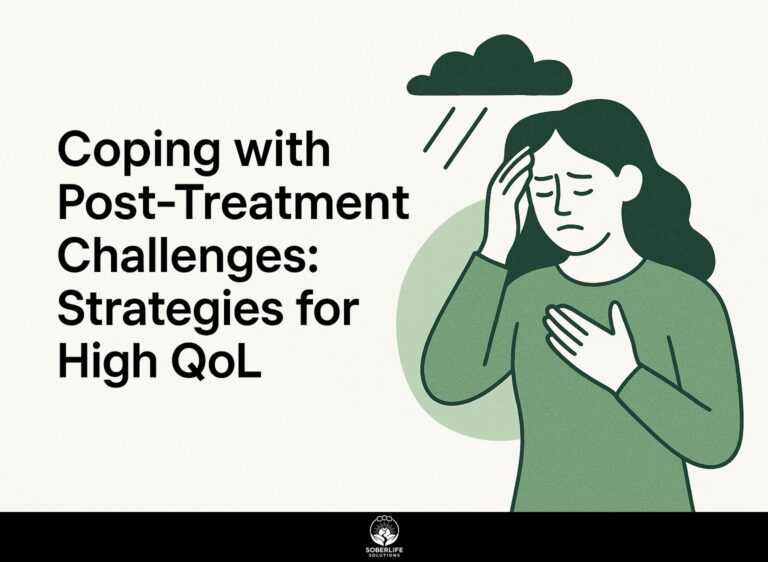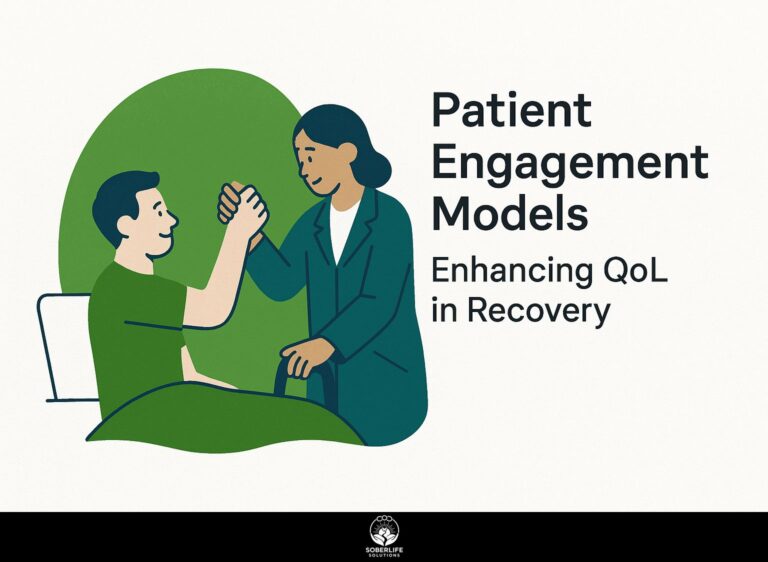Impulsivity in Alcohol Use Disorder: Management
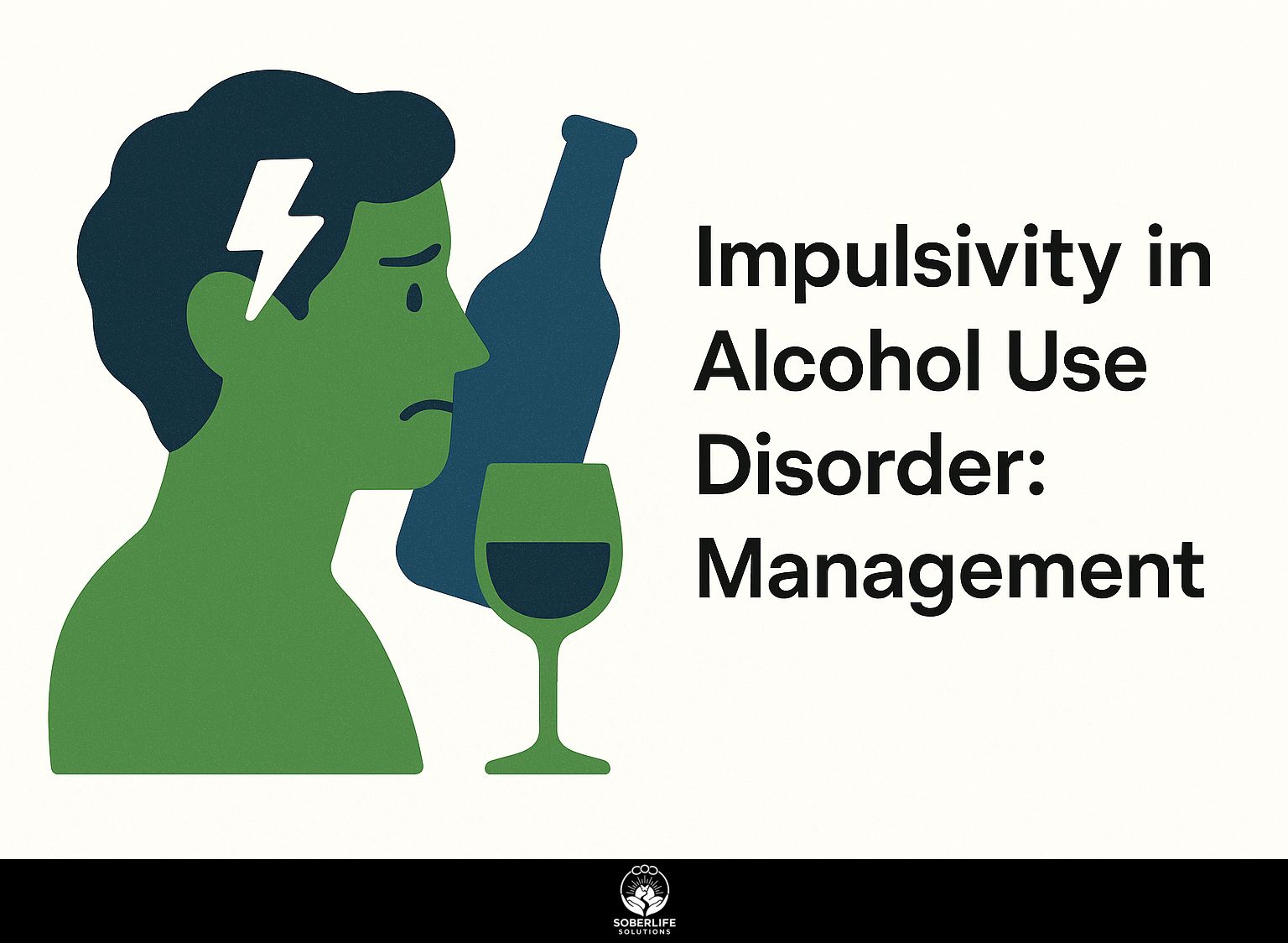
Impulsivity often fuels the cycle of alcohol addiction, complicating the management of the alcoholic brain. People with alcohol use disorder often show impulsive actions and are prone to anxiety, so effective strategies are important. In this article, we will look at how to evaluate and handle these sudden behaviors, providing useful advice and practical methods for those looking for help and guidance in dealing with the challenges of alcohol use disorder.
Key Takeaways:
Understanding Impulsivity
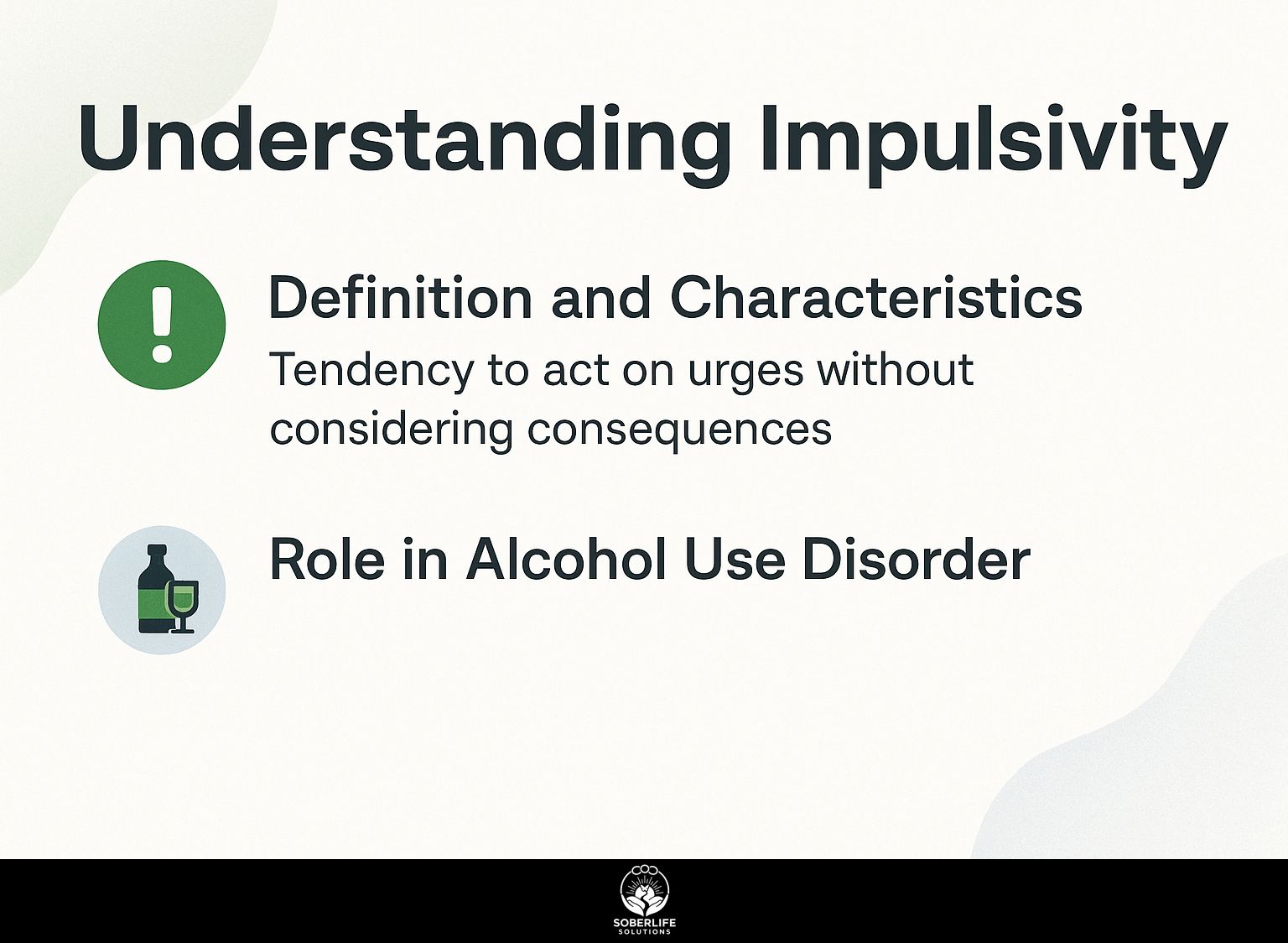
Acting on impulse, which means making fast decisions without planning, can make alcohol problems worse and hinder recovery. As ScienceDirect explores, emotion-related impulsivity significantly impacts decision-making processes, highlighting the challenges faced during recovery.
Definition and Characteristics
Impulsivity involves characteristics like acting without thinking and struggling to control actions, leading to poor choices.
These traits show up in various ways, such as a pressing need to make decisions quickly, leading to fast choices without thinking about the consequences.
For instance, individuals may opt for immediate gratification, like choosing to drink alcohol at a party rather than considering long-term health impacts.
Behavioral disinhibition also plays a role; this can result in ignoring potential risks, such as driving under the influence.
Recognizing these patterns is key to making strategies for decision-making, such as mindfulness techniques or cognitive-behavioral approaches to slow down thoughts.
Role in Alcohol Use Disorder
Impulsivity is a significant risk factor for developing Alcohol Use Disorder, often leading to increased alcohol consumption and dependency.
Research indicates that up to 40% of individuals with Alcohol Use Disorder (AUD) exhibit heightened impulsivity, which is often linked to risky behaviors. For example, impulsive drinkers may frequently engage in binge drinking or drunk driving, further exacerbating their alcohol dependence.
Tools such as self-monitoring apps can help individuals track their drinking patterns and identify impulsive tendencies. Cognitive-behavioral therapy (CBT) is another effective method, teaching individuals to recognize triggers and develop coping strategies to mitigate impulsive urges, as supported by research findings published in Nature.
This method can greatly lower the chance of relapse and encourage better choices.
Assessment of Impulsivity in Patients
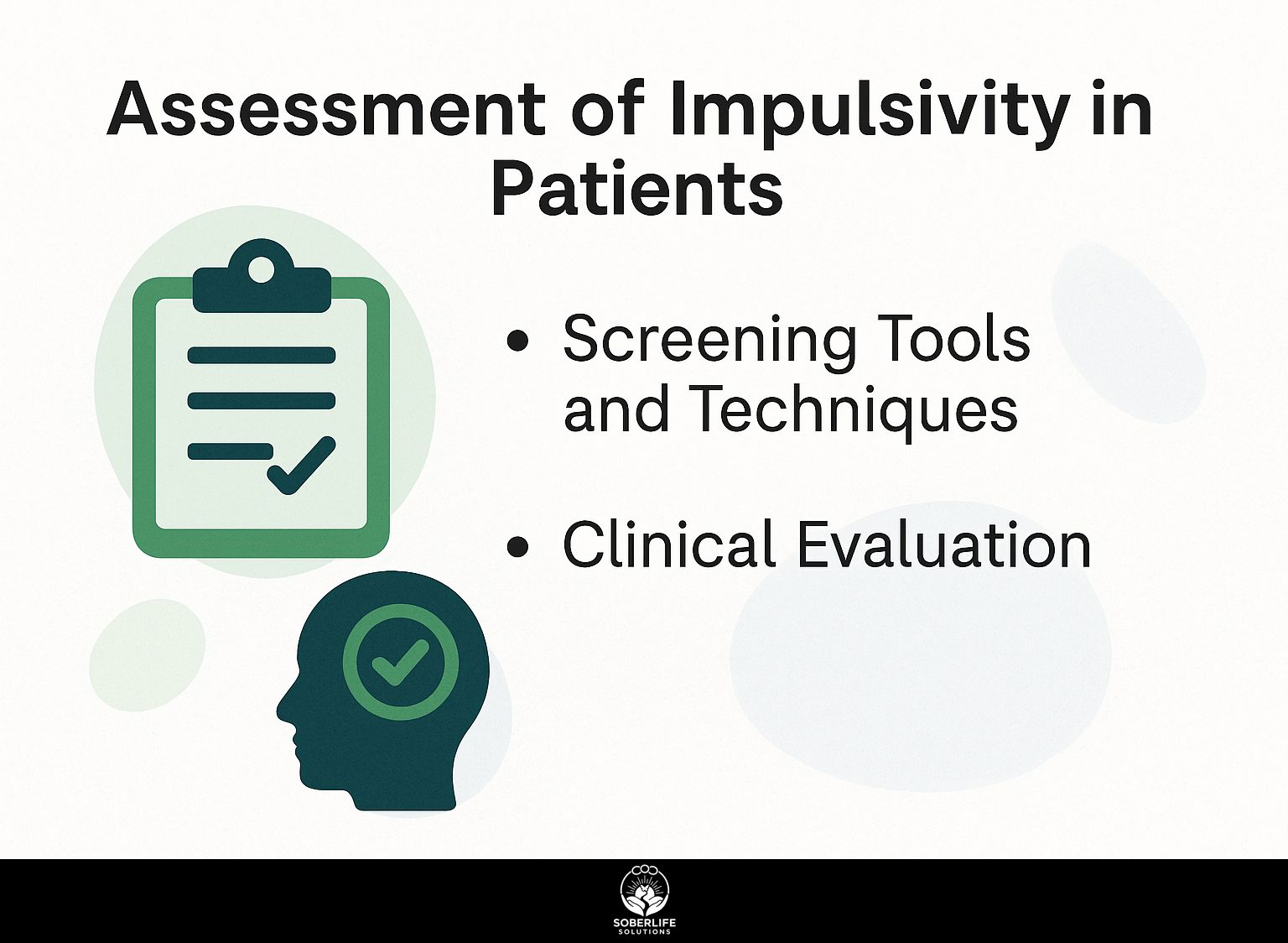
Evaluating impulsivity in patients needs validated screening tools and thorough clinical assessments to create effective treatment plans.
Screening Tools and Techniques
Commonly used screening tools include the Barratt Impulsiveness Scale (BIS-11) and the UPPS Impulsive Behavior Scale, both critical in evaluating impulsivity levels.
The Barratt Impulsiveness Scale (BIS-11) uses a 30-question survey to measure impulsiveness in different situations, with scores ranging from 30 to 120.
The UPPS model breaks impulsivity into four categories: urgency, planning, persistence, and the desire for new experiences. This provides a thorough view of a person’s actions.
When implemented in clinical settings, these tools reliably predict impulsive actions, aiding in treatment planning. For instance, a higher BIS-11 score might indicate the need for cognitive-behavioral interventions to improve self-regulation. As noted by Nature’s recent study, multimodal objective assessments can enhance the evaluation of impulsivity, offering deeper insights into individual behaviors and strategies for intervention.
Clinical Evaluation
A thorough clinical evaluation involves interviews and self-report measures, assessing psychological distress and impulsivity symptoms.
To evaluate thoroughly, clinicians should use organized interviews specifically designed to assess impulsivity.
Key questions might include:
- “How often do you act without thinking?”
- “Can you describe situations where you regretted acting impulsively?”
Reliable self-report measures like the Barratt Impulsiveness Scale can provide quantifiable data. Checking how impulsivity connects to alcohol use is important; for example, inquire about drinking habits when someone acts without thinking.
Using these methods will provide information on how impulsivity affects alcohol-related behaviors, allowing for focused interventions.
Management Strategies for Impulsivity
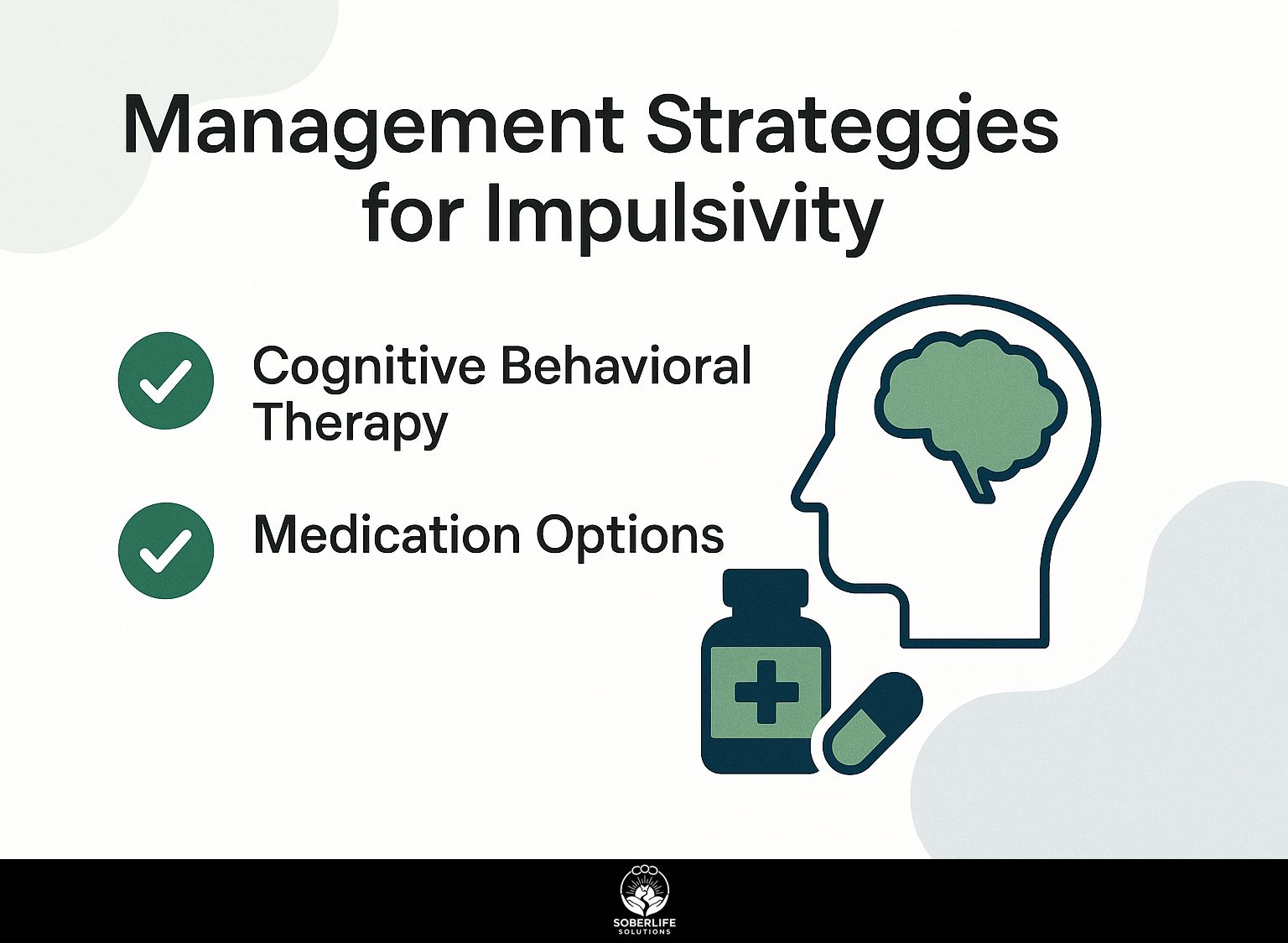
Dealing with impulsive actions in people with Alcohol Use Disorder (AUD) includes different approaches, mainly Cognitive Behavioral Therapy (CBT) and some medications. For those seeking additional methods, exploring various therapy modalities for relapse prevention could offer comprehensive support in managing impulsivity.
Cognitive Behavioral Therapy
Cognitive Behavioral Therapy (CBT) has been shown to reduce impulsivity by helping individuals develop healthier coping mechanisms and thought patterns.
In CBT, therapists guide clients to identify distorted thinking patterns and challenge them. For example, a person might learn to recognize impulsive urges and use techniques like thought-stopping or reframing to manage their reactions.
Studies indicate that CBT can lead to a 50% decrease in impulsivity for many participants, with one meta-analysis revealing a success rate of 70% for those engaging in regular sessions.
Writing in journals for self-reflection or using mobile apps like MoodFit can help apply CBT techniques in daily life.
Medication Options
Medications such as Naltrexone and Acamprosate can help manage impulsivity and reduce cravings in individuals with alcohol dependence.
Naltrexone is a drug that blocks opioid receptors, which helps lower the desire to drink by stopping alcohol from giving pleasure. A clinical study published in the Journal of Clinical Psychiatry showed a significant reduction in drinking days among participants using Naltrexone.
Acamprosate, on the other hand, stabilizes neurotransmitter systems affected by alcohol, helping to curb cravings and anxiety. Research in Alcohol & Alcoholism found that individuals receiving Acamprosate had higher abstinence rates compared to placebo.
When considering treatment, consult a healthcare professional to assess the best individual approach for managing impulsivity.
Support Systems and Resources
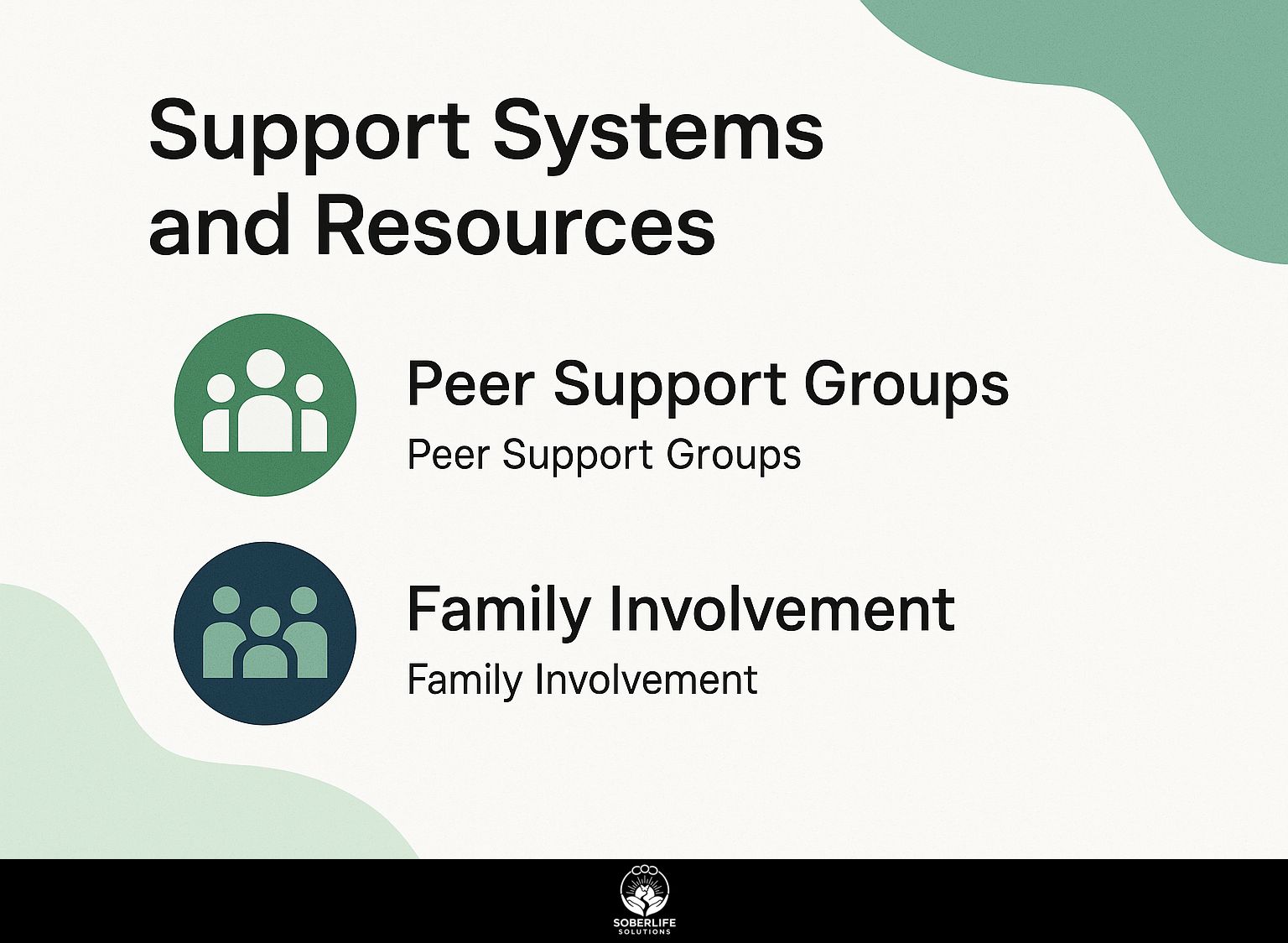
Support systems are important for helping with impulsive behavior and aiding recovery by giving emotional and practical help. If you’re interested in exploring effective support mechanisms, you might find our deep dive into sober support systems that help insightful.
Peer Support Groups
Peer support groups like Alcoholics Anonymous (AA) provide a space for people to share their experiences, helping them manage their emotions and stay responsible.
These groups hold regular meetings where members talk about their experiences and difficulties, which creates a feeling of community.
Research indicates that people in support groups have a 50% lower chance of relapsing than those who only use traditional therapy.
A lot of people follow methods like the 12-step program, which promotes accountability and goal-setting. A study in the Journal of Substance Abuse Treatment showed that 70% of participants noticed a big improvement in their recovery because of the help and advice from others.
Family Involvement
Involving family in recovery improves support networks and helps create better relationships.
To bring families together, start by organizing frequent meetings where everyone can share their thoughts and feelings.
Encourage open communication using tools like family therapy or support groups, which can provide structured environments for discussion.
Use resources like the National Alliance on Mental Illness (NAMI) for educational materials that give families information.
Establish clear boundaries and roles within the family to avoid enabling negative behaviors while supporting recovery.
This team effort builds a feeling of responsibility among all members, improving the recovery process.
Long-term Outcomes and Prognosis
The long-term prognosis for individuals with AUD can improve significantly with sustained management of impulsivity and adherence to recovery strategies.
Research shows that strong impulsivity management can reduce relapse rates by up to 50%. Techniques such as cognitive-behavioral therapy (CBT) and mindfulness practices are effective in addressing impulsive behaviors.
Joining organized support groups, such as Alcoholics Anonymous, promotes responsibility and helps in recovery. For instance, participants in these groups have reported a 30% higher success rate in maintaining sobriety after one year compared to those who do not engage in peer support. Additionally, engaging in group counseling for AUD can provide a similar peer support dynamic, enhancing recovery success.
Focusing on these strategies can significantly improve recovery results and lower the chance of relapse.
Frequently Asked Questions
What is impulsivity in relation to alcohol use disorder?
Impulsivity is defined as a tendency to act without thinking or considering the consequences. With alcohol use disorder, impulsivity can show up as a strong desire to drink or trouble managing alcohol intake.
How does impulsivity affect the management of alcohol use disorder?
Impulsivity can make it challenging to adhere to treatment plans and avoid relapse. It can also lead to impulsive decisions that can have negative consequences, such as driving under the influence or engaging in risky behaviors while under the influence of alcohol.
What are some strategies for managing impulsivity in alcohol use disorder?
Cognitive-behavioral therapy, mindfulness techniques, and medication can all be effective in managing impulsivity in alcohol use disorder. It’s also essential to develop a strong support system and learn coping skills to resist impulsive urges.
Can impulsivity be a symptom of both alcohol use disorder and other mental health conditions?
Yes, impulsivity is a symptom that can be present in various mental health disorders, including alcohol use disorder, attention-deficit/hyperactivity disorder (ADHD), and borderline personality disorder.
Are there any risk factors for developing impulsivity in alcohol use disorder?
Studies have shown that genetics, childhood trauma, and comorbid mental health disorders can contribute to impulsivity in individuals with alcohol use disorder. Chronic alcohol use can change brain chemistry and lead to more impulsive behaviors.
Is impulsivity a permanent trait in individuals with alcohol use disorder?
No, impulsivity can be managed and even reduced with proper treatment and support. With ongoing therapy and developing healthy coping mechanisms, individuals with alcohol use disorder can learn to control impulsive urges and make more conscious decisions regarding their alcohol consumption.

